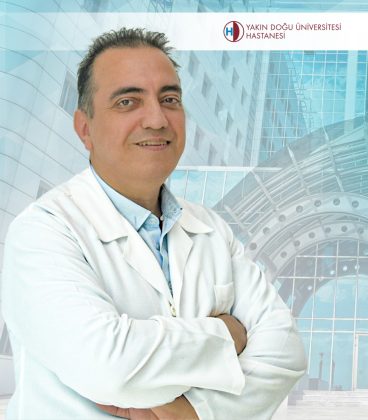
Multiple Sclerosis (MS) can occur due to different factors that vary from person to person. Neurology Specialist Dr. Tansel ÜNAL from Near East University Hospital Yenibogaziçi said that on the basis of genetic predisposition, exposure to certain environmental factors is thought to play an important role in the emergence of MS. “Especially in adolescence, it is seen that factors such as insufficient sunlight, early exposure to tobacco, vitamin deficiency, excessive consumption of caffeinated foods, intense working hours, and excessive stress are effective in the emergence of MS disease. Dr. Tansel Ünal, however, emphasized that the exact etiological factor in the development of MS has not yet been fully revealed and that more studies should be carried out in the coming period.
Symptoms of MS
MS manifests itself with attacks that last longer than 24 hours and show a wide variety of neurological symptoms, especially in the early stages of the disease. These symptoms can take various forms such as weakness in one or more limbs, numbness and loss of sensation, balance disorder, and loss of vision. Although the attacks tend to regress to a great extent at the beginning, after a while, some sequelae begin to remain in the patients, and in time, significant physical disability, loss of workforce and psychological problems occur in young adulthood, which is the most productive age of the individuals.
How is the new generation MS treatment protocol applied?
In the treatment of MS disease, in addition to the treatment of attacks, drug treatments that prevent the emergence of new attacks are also of great importance. Stating that this is a long-term treatment process and that the conventional treatments used are tiring and difficult to use for the patient, Dr. Tansel Ünal said that regardless of the effect of the disease, these treatment protocols can have devastating side effects on patients and at the same time cause intense depression, and many patients cannot comply with the treatment.
Expressing that the options in drug treatment have increased a lot today, Dr. Tansel Ünal stated that new drug treatments have been developed in the treatment of MS, and that the new generation MS drug treatments, which have been used in large centers in recent years, have begun to be applied by the Near East Hospitals as well. Regarding the new-generation drug treatment protocols, Ünal said, “For example, we can apply a very short-term special treatment protocol to a suitable patient who has been given first-line drug therapy and has not benefited. Moreover, it is not necessary to stay in the hospital for this. Our patient, to whom we administered one tablet of medication per day for only ten days, does not use any other medication related to MS for a year after this course of treatment. One year later, we follow up our patient, who was given a ten-day cure, without medication.”
Adding that the positive results obtained with the new generation MS drug treatment protocols are encouraging and promising for the future, Neurology Specialist Dr. Tansel Ünal stated that they are very pleased to be able to apply these treatment protocols, which are both more effective and easier to apply compared to other drug treatments, and with significantly higher patient compliance, to MS patients at the Near East Enterprises Hospitals.